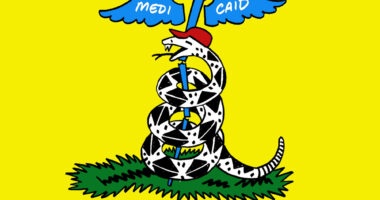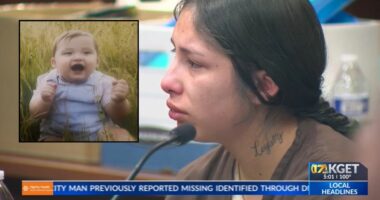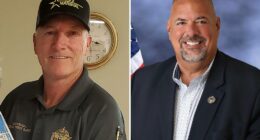
Gov. Ron DeSantis last year signed HB 1069, a law that gives anyone–whether the parent of a student or not–the right to challenge books in public school libraries. Any challenged book must be removed pending review. Thousands have been removed from school libraries across the state, including in Flagler schools.
The new law does not allow parents or anyone else to challenge a decision to remove a book. For example, individuals could challenge Ellen Hopkins’s Tilt, which was challenged in Flagler County and removed from shelves in March 2023. But no individual may challenge that removal.
“There’s a method on several pages in your bill for a parent to complain about a book,” Rep. Yvonne Hinson, the Gainesville Democrat, asked Rep. Stan McClain, the Ocala Republican sponsoring the legislation, during debate on the bill. “But is there a method for the other 99 percent of the parents to request the book?”
“No, there is not,” McClain replied.
“Would you consider including one?” Hinson asked him.
“At this time, no,” McClain replied.
Nancy Tray is the parent of three students and Anne Watts the parent of two in St. Johns County schools. Stephana Ferrell is the parent of two students in Orange County schools. The trio objected to their districts’ bans or restrictions on such titles as Kurt Vonnegut’s Slaughterhouse Five, Jaycee Lee Dugard’s A Stolen Life, Marilyn Robinson’s Shut Up! and Lauren Myracle’s l8r, g8r, among other titles.
They weren’t allowed to follow the same state review process to challenge the removals. They tried, seeking the appointment of a special magistrate in line with a May 2023 announcement by the state board that it would “establish a process for parents to request the appointment of a special magistrate if they disagree with the local decision about an objection to materials used in school or classroom libraries.” But the state summarily rebuffed them. Manny Diaz, the commissioner of education, even accused Ferrell of being an “activist” who wanted to make a sexually graphic book available to kids.
Last month, they sued the state Board of Education, charging viewpoint discrimination under the First and 14th Amendments.
Today, two of the parents, Tray and Watts, were in Palm Coast as the guests of the weekly meeting of the Atlantic Chapter of Americans United for the Separation of Church and State, a non-profit Chaired by Rabbi Merrill Shapiro. The parents’ appearance drew some 20 people to the Pine Lakes Golf Club venue where the group usually meets every Wednesday, usually in smaller numbers.
Tray and Watts cautioned that they would not–and did not–speak about the lawsuit, about which little has happened anyway other than a motion to dismiss filed by the state on June 27. But as parents directly witnessing the book-banning sweeping the state, they were not short of sharp-worded perspectives and advice to like-minded individuals in Flagler countering the local book-banning, quieter though that trend has been this year.
“everybody knows all the repercussions and the implications with book banning and what it can lead to as far as even our kids thinking critically,” Watts said, “their chances of getting into a good college because they can’t, like Nancy’s son, can’t read certain books in their AP classes. And then all the way to teaching empathy, to learn to accept the LGBTQ community, teaching accurate history. It’s all of that stuff they’re trying to do away with under the guise of protecting our kids. And it’s not protecting them at all.”
Tray has a senior, a ninth grader and a sixth grade in St. Johns schools. She’s seen the book-banning firsthand. “It’s been appalling,” she said. “I worked the night shift when they were little and I would come home at 8:30 in the morning and hold my eyes open with my fingers and read books to my kids because I wanted my kids to love reading, and it didn’t matter if the book was something I was interested in.” One of her children only wanted to read about trucks. “I can still recite Chuck books from memory. But that’s what he loved and it was so important to us to instill this love of reading in our children. So to have this happen in our school district has been devastating, just absolutely devastating.”

The state’s new law amounts to “a big ball of confusing, intentionally vague garbage” that media center specialists–librarians–and other faculty have to deal with, she said, cautioning against criticizing the rank and file in the schools: the media centers remain the most professional judges of what is and what isn’t appropriate to read, and at what level. But they are being denied the chance to exercise that professionalism, as they used to before book-banning became the politically charged opportunism it has been for the last few years.
It’s not just book-banning, said Hazel Robinson, who works on freedom-to-read advocacy in St. Johns with Watts and Tray. It extends to the curriculum–and it’s not always a losing cause: in one case, a book by Dave Ramsey purportedly about economics that was used in schools–and is a favorite on the homeschool circuit–used all sorts of quotes from scriptures, and didn’t meet standards. “We didn’t object to the bible quotes. We fought on the fact that the book didn’t meet the standards for the state of Florida. And that book was taken off the list,” Robinson said. “Just by stepping up and speaking out, we can make a difference.”
That was the advocates’ message today: to not lose heart but to keep looking at new avenues of battling the bans or the attempted insinuations of materials that are below standards, whether it’s networking with groups such as the Florida Freedom to Read Project or monitoring school boards and showing up there to counter bans. “And every time you go, you make the same points over and over and over,” a retired woman without children in schools who described herself as an activist said. It can take time. But it’s not futile.
“There are a lot of positive things going on, and all of us are contacts for you,” Robinson said,” and I appreciate that you are for us, because the more voices we have in the in the right here the more power we have. I feel and we can combat this. It’s just it’s horrible, but we don’t have to sit back and let it happen.”
The audience of course was friendly: no evidence of Moms for Liberty–the group that became the standard bearer of the book banning spree, though in Flagler as in St. Johns, it appears to have substantially vanished from visibility. Perhaps the group considers its work just as substantially done, even as what Tray described as “soft censorship” continues to shred classroom libraries. Teachers and media specialists, out of fear that a book might be objectionable, simply remove it to avoid problems. That happened in Flagler County, too (as it did with Tilt). But organizations like Florida Freedom to Read are tracking the removals–and today’s advocates asked their allies in Flagler to keep tracking at their end, when they can, though often enough, the “soft censorship” removal of books is not documented. It can be termed “weeding,” or entire shelves can simply vanish from classrooms.
The discussion touched on the relationship between white, Christian nationalism and the book-banning movement, claims of “indoctrination” that now stand ironically up against the just-legalized push to open school doors to chaplains. Some in the audience, perhaps referring to the new law in Louisiana making the display of the Ten Commandments in schools mandatory and a similar push in Oklahoma, anticipate that the Commandments will next appear in Florida schools.
It wasn’t book-banning that first got Tray involved in countering school policies. It was St. Johns County’s dress code. “All the girls there had to wear long pants, and the boys could wear shorts and the girls couldn’t,” she said. “We had a very sexist dress code in our county.” She started a coalition, a social media campaign, contacted the mainstream media, appeared on the Today show and other network shows. “We blew it up because we were over it,” she said. “So I think when it comes to other issues that you might care about, it’s just that relentless, like don’t ever let anything–not book, not whatever it is, don’t let it go quietly. You need to be loud and proud about how much you care about this.”
![]()
Disclaimer: Merrill Shapiro chairs the FlaglerLive Board of Directors. He had no involvement in the assignment, the writing or the editing of this article.
st-johns-book-bans
Click On:
|









